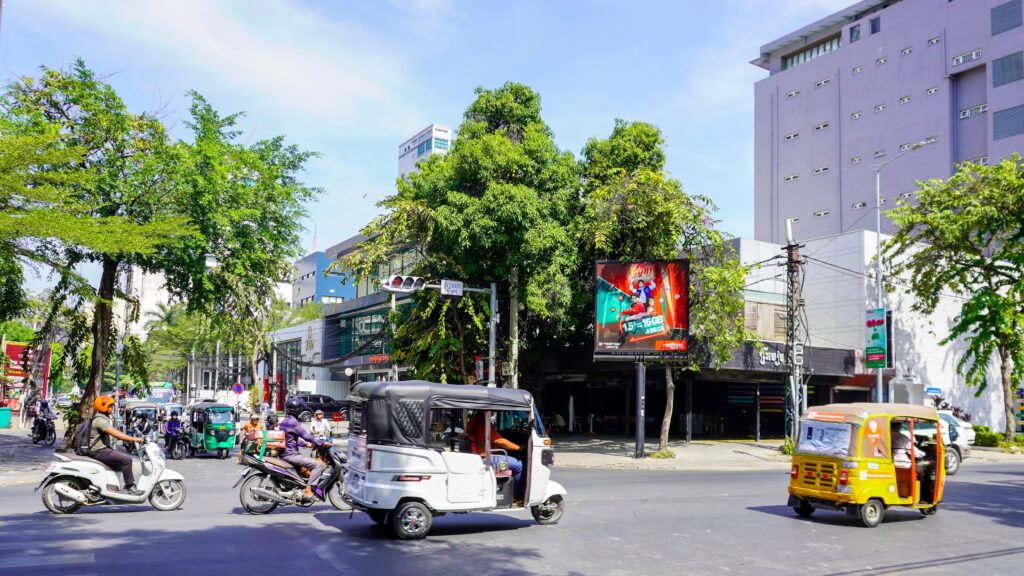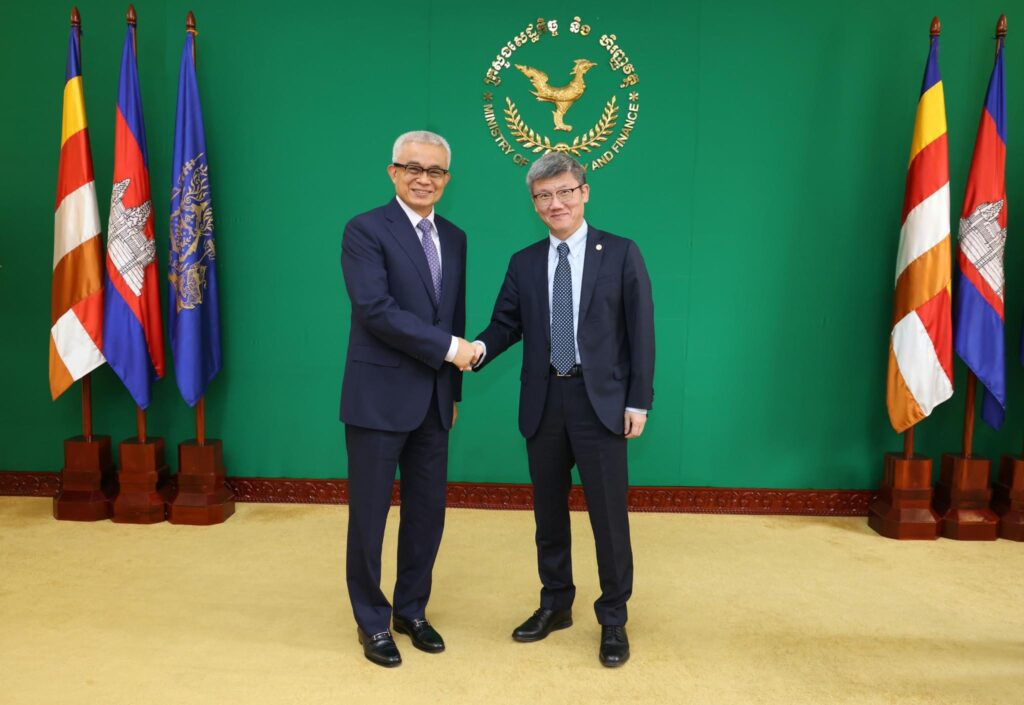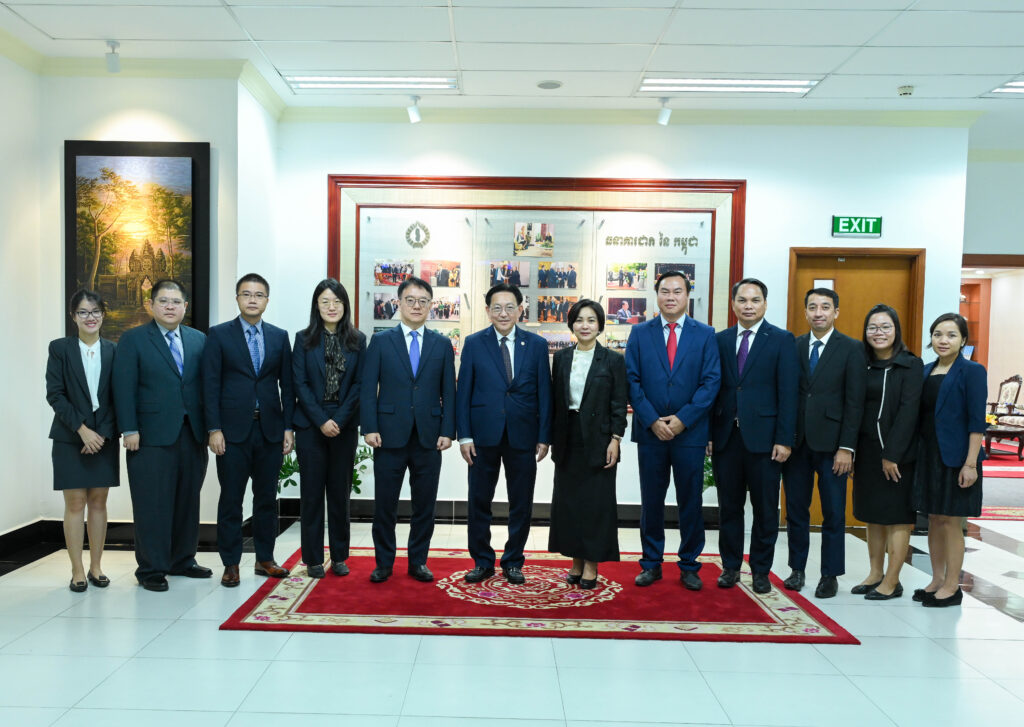
Image: Assa2215 / Shutterstock.com
SINGAPORE, May 23, 2024 – Cambodia’s economy grew robustly by 5 percent in 2023 with tourism and supporting service activities as well as non-garment manufacturing industries as the main drivers of growth, notwithstanding the decline in garment export and drag in real estate sector. The economy is expected to continue its recovery from the COVID-19 pandemic with growth projected to reach 5.6 percent in 2024. However, the recovery trajectory is contingent on external risks and domestic vulnerabilities, particularly prolonged weakness in the real estate sector and a decline in credit quality. The government should restore fiscal space, mitigate financial stability risks, and strengthen structural reforms to ensure resilient growth.
This is according to the preliminary assessment by the ASEAN+3 Macroeconomic Research Office (AMRO) after its Annual Consultation Visit to Cambodia from May 2 to 13, 2024.
The mission was led by AMRO Principal Economist Jinho Choi. AMRO Director Kouqing Li and Chief Economist Hoe Ee Khor participated in the policy discussions. The discussions focused on Cambodia’s recent macroeconomic developments and outlook, risks and vulnerabilities, and policy recommendations to secure resilient growth and financial stability.
Economic developments and outlook
“The Cambodian economy is projected to grow by 5.6 percent in 20241 and 5.9 percent in 2025, up from 5.0 percent in 2023. A recovery in the garment sector, sustained expansion in other manufacturing exports, and continued tourism rebound will support the ongoing economic recovery,” said Dr. Choi.
Cambodia’s continuous reliance on imports to meet domestic demand resulted in substantial fluctuations in consumer prices. Consumer price index (CPI) inflation declined to 2.1 percent in 2023 from a peak of 7.8 percent in June 2022. CPI inflation is forecast at 2.5 percent in 2024 and 2.6 percent in 2025, converging to the pre-pandemic trend.
The current account (CA) balance turned into a surplus of 1.3 percent of GDP in 20232, underpinned by a significant reduction in trade deficits. The CA is projected to register a smaller surplus of 0.6 percent of GDP in 2024 and 0.1 percent of GDP in 2025, in line with the recovery in demand for imported goods as the economy strengthens. Foreign direct investment (FDI) inflows remained resilient at 9.3 percent of GDP in 2023.
Amid the uncertain outlook and banks’ cautious lending attitude, credit growth decelerated sharply to 4.7 percent (yoy) in February 2024 from 18.2 percent in December 2022. While sufficient capital buffers are in place, the surge in non-performing loan (NPL) ratios and a narrowing interest margin have significantly reduced the profitability of financial institutions.
Risks, vulnerabilities, and challenges
Cambodia is confronted with short-term risks which are mainly external, as well as domestic vulnerabilities that could hinder the post-pandemic recovery.
Cambodia is highly vulnerable to a sharper-than-expected slowdown in major economies, with potential shifts in US and EU trade policies posing additional risks. Cambodia’s inflation is also vulnerable to the risk of a spike in global commodity prices.
A gradual rise in NPLs may exert substantial pressure on banks’ profitability, thus steadily eroding capital buffers. A deepening of financial distress among real estate developers could lead to heightened credit risks in the banking sector.
Scarring effects of the pandemic have reduced capital formation and may pose structural challenges to long-term growth potential. A failure to implement climate change adaptation and mitigation measures could also bring a major long-term economic risk.
Policy recommendations
In light of the widened fiscal deficit in 2023 due to the fall in revenue, the focus should now shift toward fiscal consolidation and the rebuilding of fiscal space. Increasing the efficiency of expenditure is important to enhance economic development outcomes and boost growth potential. It will be crucial to raise revenues to secure funds for development needs while enhancing fiscal sustainability. Streamlining tax incentives for investment is also necessary to preserve fiscal space and limit forgone revenue.
The National Bank of Cambodia’s (NBC) should resume its post-COVID normalization of forbearance policies next year. The NBC should closely monitor sectoral NPLs and ensure that banks maintain adequate provisions. Policy frameworks should be strengthened to foster interbank market development.
The Non-Banking Financial Services Authority (NBFSA) should establish a comprehensive legal framework and strengthen the regulatory oversight and supervision of under-regulated shadow banking activities in the real estate sector to mitigate the hidden credit risks. Fortifying oversight and supervision of the real estate sector should also be a priority.
To secure long-term resilient growth, the government should ensure a timely implementation of the Pentagonal Strategy – Phase I to nurture human capital and promote FDI; escalate physical and digital infrastructure development; and accelerate exports diversification and enhance the role of Cambodia in the global value chain.
The AMRO team would like to express its gratitude to the Cambodian authorities and participating organizations for their cooperation and candid exchange of views during the mission. AMRO wishes to express its appreciation for the strong support from the authorities and the excellent arrangement that has made this mission possible.
1Cambodia has rebased its GDP series, replacing the base year 2000 with 2014. Accordingly, all relevant data in this Release have been produced using the new GDP series with the base year of 2014.2Nominal GDP figures are based on AMRO staff estimations.
About AMRO
The ASEAN+3 Macroeconomic Research Office (AMRO) is an international organization established to contribute toward securing macroeconomic and financial resilience and stability of the ASEAN+3 region, comprising 10 members of the Association of Southeast Asian Nations (ASEAN) and China; Hong Kong, China; Japan; and Korea. AMRO’s mandate is to conduct macroeconomic surveillance, support regional financial arrangements, and provide technical assistance to the members. In addition, AMRO also serves as a regional knowledge hub and provides support to ASEAN+3 financial cooperation.

AMRO Director Kouqing Li met with H.E. Dr. Aun Pornmoniroth, Deputy Prime Minister and Minister of Economy and Finance (MEF) of Cambodia.

AMRO Chief Economist Hoe Ee Khor and the AMRO Cambodia team met with H.E. Dr. Chea Serey, Governor of the National Bank of Cambodia (NBC) and other senior officials from the NBC.
